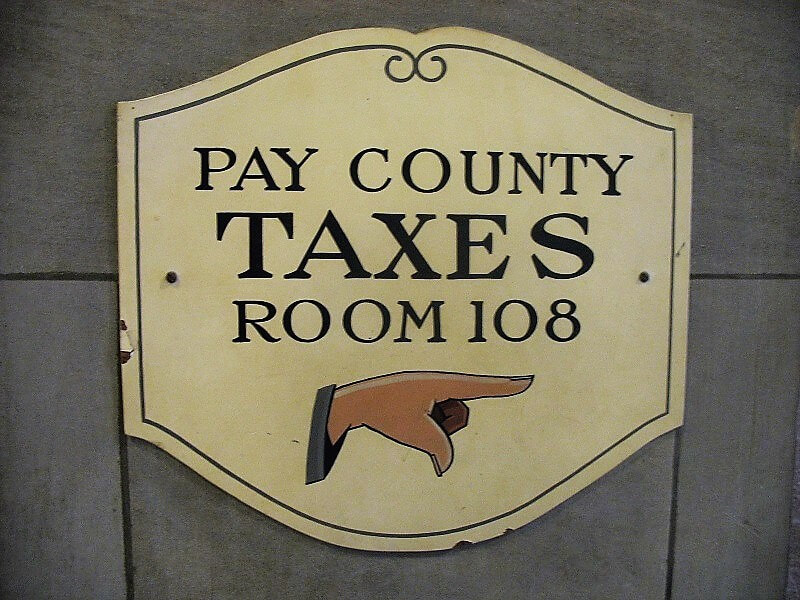
It’s April 2021 that means it’s high season for tax payers in America. Have you considered all the potential tax deductions available to you as a Colorado resident? Tax deductions significantly reduce the amount of tax you pay, giving you a hefty reduction of your tax liability. For example, by allowing you to subtract the mortgage interest from your taxable income, the government gives you more incentive to buy a house. In Colorado, you can deduct interest on your first and second mortgage up to $1,000,000.
But first, you have to itemize every deductible expense you incurred during the tax year. As a Colorado resident, you are entitled to the following tax deductions:
Mortgage Interest
When buying a property in Colorado, you have to pay interest on the loan at a 2.6 percent rate of the total mortgage. The IRS allows itemized mortgage deductions to reduce your taxable income. If your loan is less than $1 million, all your interest is tax-deductible.
You might also qualify for other tax breaks if you take a second mortgage or refinance your home. Your mortgage lender will send you the form 1040 in February. You need to keep good records and itemize all your taxes.
You’ll only qualify for mortgage interest deductions in the following instances
- Loans to buy a home
- Construction loans
- Home equity lines of credit
- Loans to buy a second property
However, you cannot claim any deductions if you took a loan for another purpose. You must prove that the loan was meant for home buying, building, or home improvement.
Ensure that your basic information, such as your name, filing status, and Social Security number, is correct. Also, you must enter the financial information on the right line. After completing the itemization, remember to proofread the document and check for mistakes.
Loan Points
Colorado homeowners are allowed to reduce their monthly mortgage payments through loan points. One point is equivalent to 1 percent of your mortgage amount. Buying loan points is worthwhile as they make homeownership in Colorado more affordable.
Whether you are taking the first loan or refinancing your home, you need to take advantage of this incentive. You are allowed to deduct the loan points over the life of the loan if you have refinanced your home.
Loan points will benefit you in the following ways:
- Reduced payments
- Reduction of the total cost of your home
- Opportunity to prepay interest on your loan
- Just like the mortgage, loan points are tax deductible
You need to report your financial information exactly as it appears on the IRS database. Remember that you are also entitled to standard deductions that might make better financial sense. A tax expert will help you compare the available financial options to make the right decision.
Home Improvement Loan Interest
If you are looking to renovate your home or make any improvements that increase its value, you may be eligible for tax deductions. The IRS recognizes home improvement projects that extend its longevity or modify it for more comfort. Projects like landscaping, roof replacement, or swimming pool construction are capital improvements that the IRS recognizes.
If you are looking to claim the deductions, you must keep the receipts. Homes in the Colorado real estate market are appreciating, and those improvements count. The tax-free amount for individuals is $250,000, while married couples can file jointly for improvements worth $500,000.
Embark on the itemization process by highlighting the tax deductions to which you are entitled. You need to cross-check your forms and tell the IRS how you want to receive your refund. Ensure that the IRS properly credits your payments and pay any debts that you owe.
If you don’t itemize, you’ll still receive your standard deductions. However, you might end up losing money on the various tax benefits at your disposal.
Property Ownership Taxes
The amount of taxes you pay annually for owning a Colorado property is listed in the annual property tax statement. As a Colorado property owner, you are eligible for property tax deductions from your federal income taxes. Colorado has one of the lowest property taxes in the United States, with an average of just 0.55 percent.
However, if you take advantage of the tax deductions, this rate can go as low as 0.45 percent. If you plan to claim itemized property ownership deductions, you must file your income taxes using Form 1040 in the right way.
You begin by entering your expenses on the appropriate categories of schedule A. You need to add up those expenses and enter the total amount on the second page. Any mistakes in the itemization process can lead to denial of the tax benefits.
Sale of a Colorado Home
Once you sell your home, you are entitled to a tax break of up to $250,000 as an individual or $500,000 if you are filing jointly. However, you must have lived in the home for at least two years before the sale. If you are flipping homes, you enjoy 25 percent tax deductions for the renovations that you undertake.
Homeowners that are forced to sell their homes due to unforeseen circumstances also get some relief. It’s vital to ask your tax accountant to guide you through the right process when claiming those refunds.
You also enjoy some tax relief on various expenses that include the cost of hiring a real estate agent, escrow fees, title insurance, the cost of hiring an attorney, and legal fees. With a tax accountant’s help, you can examine your finances and get recommendations to make the most of the tax year. In addition to itemization, a tax attorney can advise you on everything you need to enjoy a better outcome in the next tax season.
Consult A Professional
The process of itemizing for tax deductions can be a daunting task. If you select the incorrect form or quote the wrong assessment year, you won’t benefit.
If you furnish the incorrect personal information to the IRS, you may be charged penalties and interest. It’s vital to have a tax accountant prepare the tax deductions on your behalf to counter check every detail.
As always, for the most accurate and relevant information or advice, contact a certified tax expert in Colorado who can assist you based on your needs and circumstances.
